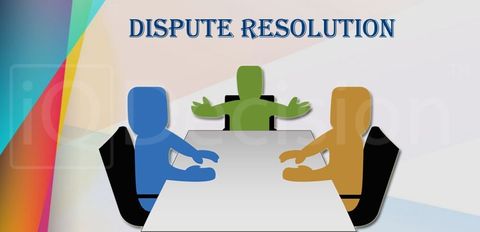Why choose a peaceful way to resolve the dispute? This question interests many. In particular, it arises among those who are confident in the successful outcome of their case in court.
What is a peaceful dispute resolution in court? Do participants need this?
Let's see why it is actually in the interests of both parties to resolve the dispute out of court, and not just for the party that has less chance of a positive result.
There are at least three good reasons for this:
- Litigation is risk
First of all, you need to understand that litigation is an unpredictable process that carries risks. Even if you think that you have all the facts and evidence to win the case, there is always the likelihood that you will lose the case due to some mistake, or everything will go wrong as you planned. Here new evidence may appear or the legal framework may change. For this reason, you should not be sure that nothing will interfere with a positive outcome;
- Litigation is expensive
Litigation is expensive, and it's an axiom. In this regard, many say that there is no need to worry, because the court will be on their side, and the losing side will be obliged to reimburse all expenses. But it is not so. First, let's recall the first point where a lawsuit is a risk. And secondly, any legal costs will hit the "wallet": the payment of lawyers will be monthly, but the reimbursement of these expenses will be the losing side only after the trial is completed. Moreover, it will be impossible to recover all legal costs. As a rule, about 70% of legal costs will fall on the shoulders of the winning party. This means that even at the end of the case in your favor, you will incur a large amount of expenses. For this reason, it is worth thinking about out-of-court settlement of a dispute, for example, using the services of a mediator to resolve a commercial dispute.
- The trial is troublesome
A lawsuit is more like an accounting audit, which takes 1-2 years. During this period, you will need to work closely with lawyers to prepare your case for trial. For the same purpose, you will need to provide open access to the database for your lawyer so that he can provide all the evidence and facts to your opponent. This factor is often overlooked when it comes to choosing between judicial and extra-judicial settlement.
Save time, money and nerves
We examined three reasons that answer the question of why a peaceful settlement of disputes is preferable to litigation. But why, in practice, do the parties turn to the judiciary anyway?
The reason, as often happens, is in disagreement. Even if you intend to resolve a commercial dispute out of court, you may encounter objections from an opponent who does not recognize the above problems in a lawsuit and refuses to negotiate a peaceful settlement of the dispute. Nevertheless, we recommend that you do not take off your shoulder, but try to resolve your dispute in a peaceful way, without resorting to legal proceedings, while saving time, money and your nerves.
Appeal to the court is one of the possibilities for resolving disputes with an opponent. Moreover, the appeal of the parties to independent qualified lawyers at the stage of pre-trial settlement of disputes very often leads to a much more effective and quick resolution. At the initial stage of disagreement, people in most cases are guided not by logic and interests, but by emotions and feelings.
The task of specialists is to carry out certain actions to deeply study the potential for a peaceful settlement of the dispute. A reasoned report to the warring parties of possible scenarios for the development of the conflict is simply necessary for the right choice in achieving a possible compromise. After all, a bad peace is always better than a good war.
If you need to resolve a commercial dispute through a lawsuit or other resolution, consult with a lawyer about your specific situation before making any decisions.
IQ Decision UK is ready to represent your interests in litigation, as well as represent your interests in arbitration.


















